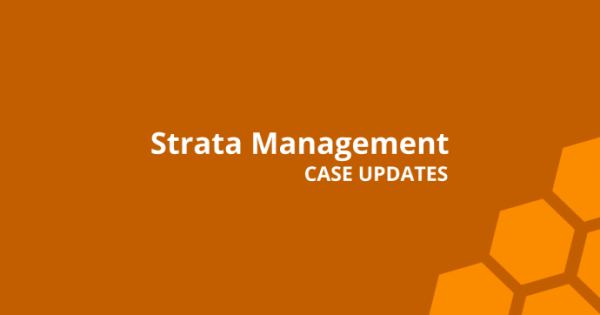(Waste Separation) A Sustainable Environment – Towards a Progressive Malaysia
Time truly waits for no man. We are already marching into the half-year mark of year 2016.
Besides celebrating the half-year milestone of 2016, the month of June bears an important reminder to all Malaysian citizens in light of the recent announcement made by the Ministry of Urban Wellbeing, Housing and Local Government (Kementerian Kesejahteraan Bandar, Perumahan, dan Kerajaan Tempatan – KPKT) on 16 May 2016. Briefly, households which fail to separate solid waste according to its respective categories can attract fines of up to RM1, 000.
The enforcement however only applies to the Federal Territory of Kuala Lumpur, Putrajaya, Johor, Negeri Sembilan, Pahang, Malacca, Kedah and Perlis at this stage. It is just a matter of time before the entire nation catches up with the waste separation implementation.
The mandatory waste separation took effect on 1 September 2015. However, it has been observed that Malaysians at large remain lax or ignorant when it comes to separating waste. This can be attributed to the lack of enforcement at the federal and state level or lack of cultivation of recycling habits since young.
The main statutes governing the mandatory system waste separation are the Solid Waste and Public Cleansing Management Act 2007 (Act 672) and the Solid Waste and Public Cleansing Management Corporation Act 2007 (Act 673). The latter regulates the Solid Waste Management and Public Cleansing Corporation (commonly known as SWCorp). SWCorp is the agency appointed to regulate the waste separation regulation.
TYPES OF WASTE
Firstly, solid waste can be categorized under two broad categories namely residual waste, (also known as wet waste) and recyclable waste (also known as dry waste).
-
Residual Waste/Wet Waste: unrecyclable materials that are generally damp and wet in nature. Examples of residual waste are organic food waste, soiled items, sanitary pads, damp and/or contaminated materials
-
Recyclable Waste and/or Dry Waste: Recyclable waste is generally dry in nature and can be further separated into distinct major categories such as paper, plastic and others (examples are bottles, aluminium cans, glasses, rubbers, leathers, batteries etc)
The explanation for both residual waste/wet waste and recyclable waste/dry waste can be summarized in the table below.
|
Residual Waste/Wet Waste |
Recyclable Waste and/or Dry Waste |
|
| Examples | Kitchen Waste, Contaminated Materials, Diapers, Sanitary Pads, Soiled Items | Papers, Plastics, Aluminium, Glasses, Metals, Fabrics (Shoes, Leather), Rubber |
| Disposal Method | Stored in plastic bags and placed into the rubbish bins | To be separated into different plastic bags according to respective categories and to be placed next to rubbish bins |
| Collection Frequency | Twice a week (varies according to neighbourhood)** | Once a week (varies according to neighbourhood)** |
* Collection schedules may vary according to neighbourhood location. Readers are advised to refer to this KPKT page for more information or to contact the respective local authorities.
SIMPLE & PRACTICAL STEPS TO REDUCE WASTAGE
Waste separation exercises are easy, effortless and environmentally friendly plus, their benefits can be observed in the short and long run. With a little dedication, it’s not long before they become part of your daily habits.
Here are some simple and practical ways to reduce wastage:
1. Bring your own containers whenever you are packing food from restaurants.
This habit can help reduce the usage of polystyrenes (which are non-biodegradable) and paper packages. Containers can be reused after washing and also kept for future use.
2. Bring reusable grocery/shopping bags when going shopping.

This reduces the need for retailers to provide paper bags and plastic bags. Plastic bags are generally non-biodegradable; therefore the usage of plastic bags is burdensome on the environment. Manufacturing biodegradable plastic bags is expensive and the cost will be passed on to the consumers.
3. Reduce the usage of paper cups, paper plates and plastic utensils during parties.

You should use ceramic cups, plates or stainless steel utensils which can be washed and reused repeatedly.
(On the upside, it also means you’ll have less trash to separate! -ed.)
4. Control Our Food Consumption.

In simple words, we should not consume more than what we need! We are all guilty of gluttony every now and then. One of the greatest habits Malaysians need to cultivate is eating in moderation.
5. Use Kitchen/Food Waste as Fertilisers in your house gardens.
(Composting is a cheaper alternative to store bought fertilisers. It’s also a fun way to get your family involved in your efforts to go green! -ed.)
FURTHER ISSUE: Hazardous vs Non-Hazardous Substances
There is one prevailing issue which need to be addressed – a clearer guideline and platform for the disposal of certain hazardous materials/chemicals. For example, batteries, alcohols, perfumes, pesticides and etc. Negligent/Wrongful disposal of hazardous materials can lead to irreversible consequences such as fire, soil and/or air pollution.
One possible solution is to be strict on imposing companies to recollect old batteries, unconsumed alcohols, perfumes, pesticides and other hazardous materials which can be identified from time to time (according to Section 102, Solid Waste and Public Cleansing Management Act 2007).
Waste separation is a starting point. The ultimate goal is however, to develop a waste separation system which is feasible and effective in the long run in pursuit of a sustainable environment.
TIME TO GET SERIOUS
Malaysia is lagging behind in terms of implementation and enforcement of waste separation. The Act was gazetted on 30 August 2007 and yet, it has taken nearly a decade for the implementation to roll out. Progressive countries such as Germany, United Kingdom and Singapore have been carrying the waste separation system for decades.
Both the public and the public authorities have major role to play in order for the system to be effective. The public should get educated and not remain ignorant. On the other hand, public authorities have to be strict in enforcement, diligent in producing clear & compelling guidelines and ensuring the appropriate platforms are available for the waste separation exercise to be successfully carried out.






